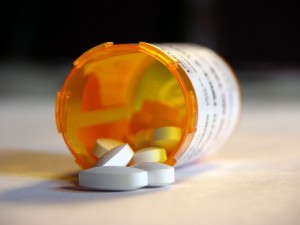Governor Chris Christie’s new law on stricter opioid prescription regulations went into effect May 16, 2017. The new law is to combat against the growing rate of opioid related deaths that is taking a toll on New Jersey families. According to the CDC, approximately 1,600 people died in New Jersey of drug overdoses in 2015. More data from the CDC show that the rate of heroin and fentanyl deaths in New Jersey has started to outpace the national average. When New Jersey Attorney General Christopher Porrino learned that 8 out of 10 overdose deaths began with prescription painkillers, immediate action was required for an emergency of these proportions.

The new law is a direct response to the opioid epidemic that is claiming thousands of lives in New Jersey. The new law now makes New Jersey the toughest in the nation in prescription opioids for acute pain. New York and Massachusetts are among nine states that have limitations for opioid prescriptions for 7 days or less.
New regulations mandate initial opioid prescriptions for acute pain limited to a 5-day supply. National guidelines for initial opioid prescriptions calls for a 7-day supply. Doctors can renew supplies for up to 25 days if the patient is still in pain. With the new law, script renewals will now follow a tougher procedure where it calls for doctors to have a follow-up consultation with a patient to ensure it is necessary. The law is for patients suffering from acute pain and doesn’t apply to patients who are currently in active treatment for cancer and receiving hospice care.
The law also increases insurance coverage for addiction treatment. To “prevent people from being denied drug treatment during a “preevaluation” that can take weeks to complete”, Governor Chris Christie pushed forth requirements for insurers to provide more coverage for inpatient or outpatient treatment.
To assure that all prescribers are compliant under the new law, they must register with the New Jersey Prescription Monitoring Program (NJPMP). The NJPMP is a statewide database that collects prescription data on controlled substances in New Jersey. State officials will monitor prescribers registered with the NJPMP to track drug prescriptions and patient’s opioid history for compliance.
Recent Posts
- Oxygen Keeps Us Alive, but Dopamine Keeps Us Living
- The Rise of Delta 8, Vapes and Legal Highs and Why Outpatient Treatment Still Matters
- How Peer Pressure is Really Affecting Your Teen
- Recognizing When Stress Becomes Too Much: How Outpatient Therapy Helps You Regain Balance
- Helping Teens Navigate Peer Pressure at Halloween Parties in the Age of Social Media



